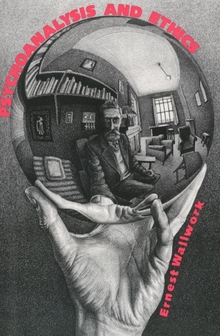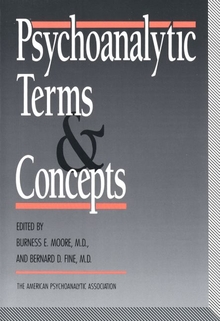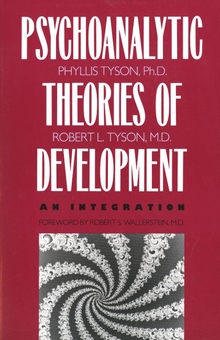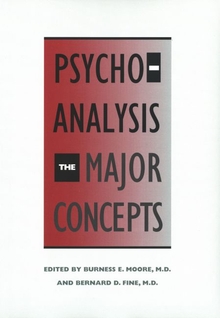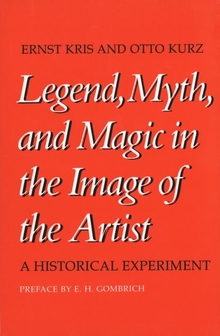Psychoanalysis and Ethics
WARNING
You are viewing an older version of the Yalebooks website. Please visit out new website with more updated information and a better user experience: https://www.yalebooks.com
Ernest Wallwork
Psychoanalysis has had a profound impact on popular morals, for Freud’s discoveries have made us aware that unconscious motivations may subvert moral conduct and that moral judgments may be rationalizations of self-interest or expressions of hostility. Freud has, in fact, been called a founder of the “hermeneutics of suspicion” that pervades modern attitudes toward morality. In this book, however, a psychoanalyst who is also a professor of ethics asserts that we do not accurately understand Freud on the various psychological issues relevant to morality and the ethical implications that can be drawn from his views. Ernest Wallwork offers a bold reinterpretation of Freudian theory, showing the ways in which it points toward the possibility of genuine moral behavior.
Wallwork provides close textual analyses of Freud’s works from a new philosophical perspective, considering such central Freudian doctrines as psychic determinism, the pleasure principle, narcissism, object-love, and defense mechanisms. He demonstrates that, contrary to widespread belief, Freud’s views on determinism allow for moral responsibility, his understanding of the pleasure principle and narcissism allows for acting out of concern of others, and his critique of the cultural superego is grounded in an ethic informed by ego rationality. Focusing throughout on Freud’s seminal understanding of the self-in-conflict, Wallwork finds and ethical theory suggested by Freud’s work that is naturalistic and grounded in a concept of human flourishing and regard for others and concerned with the common good, special relations, and individual rights.
"If Heinz Hartmann's study of moral values in psychoanalysis marked the establishment of a foothold of psychoanalysis in the land of ethics, Wallwork has managed to establish a beachhead. While Hartmann's work created an internal debate in psychoanalytic circles, Wallwork launches what may prove to be the next important area for applied psychoanalysis in the dialogue with ethics. His careful exegesis of basic Freudian texts establishes the basis for an ethical reflection that includes concepts of freedom, autonomy, responsibility, and an openness to ethical considerations that is far removed from the stereotypical view of psychoanalysis as relativistic, amoral if not immoral, deterministic, egoistic, and contrary in spirit to a more mature and meaningful ethical reflection. Wallwork has taken the bits and pieces of psychoanalytic reflection on ethical issues and woven them into a coherent account that lays the foundation for the engagement of psychoanalytic experience with ethical principles. Both ethics and psychoanalysis will be the beneficiaries of this enterprise."—W. W. Meissner, S.J., M.D., University Professor of Psychoanalysis, Boston College; Training and Supervising Analyst, Boston Psychoanalytic Institute
"A unique volume. . . . A fascinating book, well worth the time and interest of moral philosophers, psychologists, advanced undergraduates, and general readers interested in psychoanalytic theorizing and in moral and social ethics."—Choice
"The heart of the book is reconciling the paradox: psychic determinism and moral responsibility. In the treatment of this paradox and in its resolution. Wallwork has much to say which is of vital interest in understanding international disputes. . . . This book is of great significance. It is the most thorough investigation into Freud's thought on moral responsibility and social coherence. And it takes the whole of Freud into account."—Edwin Robertson, International Minds
"I cannot help but think that this book may well prove to be a watershed in the emergence of a new context of applied psychoanalysis that will have profound implications in areas of ethical concern as well as for psychoanalysts' own self-understanding."—William W. Meissner, S.J., M.D., Bulletin of the Menninger Clinic
"An important and remarkable book. . . . Wallwork takes us on a philosophical and psychoanalytic journey that illuminates our understanding of both ethics and psychoanalytic theory. . . . It [lays] the groundwork for a theoretical understanding of what constitutes moral behavior, and any psychoanalyst will profit from reading this book. . . . Wallwork not only shows that Freud was not a determinist and egoist in his theoretical constructions, he also develops an ethical theory out of his close reading of Freud's work. He provides us with a new understanding of aspects of Freudian theory and clears up some of the conceptual confusion in our theory. I highly recommend this book."—James D. Walton, The Psychoanalytic Quarterly
Publication Date: September 28, 1994

